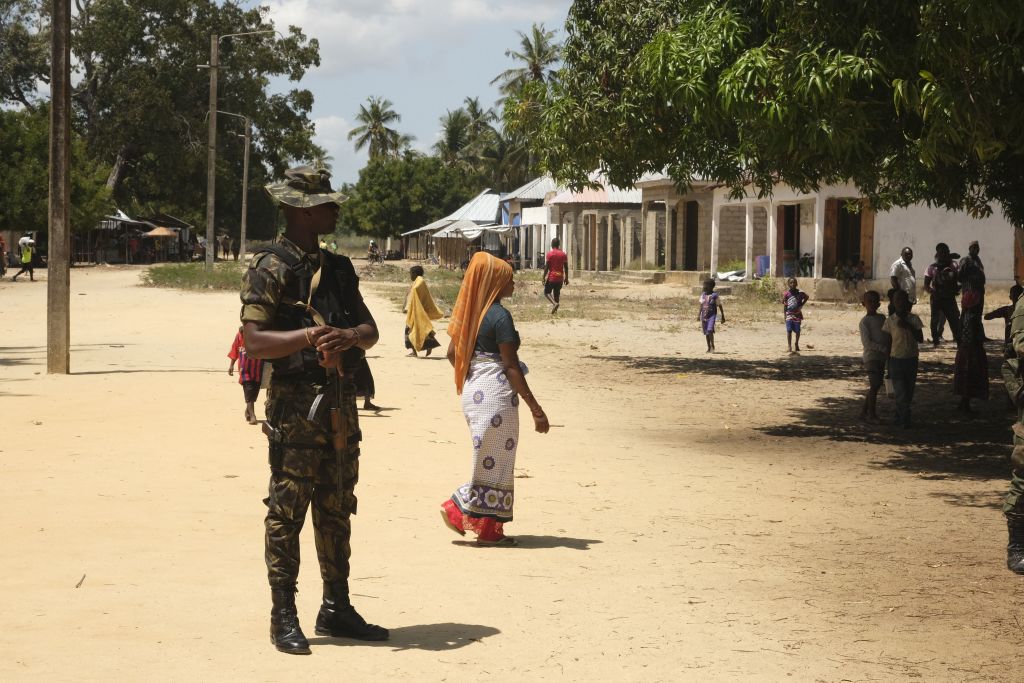Cabo Delgado Experiences Fewer Terror Attacks, But Challenges Remain
ADF STAFF
Counterinsurgency efforts in Mozambique’s Cabo Delgado province have gained momentum since international forces killed the leader of the Ahl al-Sunna wal-Jama’a (ASWJ) extremist group in August.
Some experts now say that continuous operations by the Mozambique Defense Armed Forces (FADM), Southern African Development Community (SAMIM) and troops from Rwanda have significantly reduced attacks by ASWJ, which is linked to the Islamic State (IS) group, and other
terrorist outfits.
Maj. Gen. Tiago Alberto Nampere, commander of the Mozambican Army, said during a mid-December press conference that security was re-established in about 90% of Cabo Delgado districts affected by terrorism. Authorities also say that nearly 1 million people displaced by violence in the province have returned to their homes.
However, Leleti Maluleki, a researcher at Good Governance Africa, warned that fewer attacks do not mean the insurgency is over.
“We need to remember that there were stories of insurgents infiltrating the communities, so they are still among the people; they might have radicalized certain individuals, and they might have recruited some citizens,” Maluleki told the Inter Press Service news agency in mid-January. “But we are seeing fewer and fewer attacks on a daily basis.”
Number of Terrorists Dwindles
According to a 2023 United Nations Security Council report, the number of IS fighters in Mozambique decreased from a peak of 2,500 — before SAMIM and Rwandan forces arrived — to about 280.
Despite the dwindling numbers of militants, Maluleki’s warning proved prophetic.
In January, IS-linked militants occupied the village of Mucojo in Cabo Delgado’s Macomia district after FADM forces abandoned their position, according to a report by Mozambique’s Zitamar News.
Mucojo is located along a major road that provides access to the coast of Macomia and the Catupa forest, where some insurgents live. The forest hideout is the only significant settlement held by insurgents since the Rwanda Security Forces drove them out of Mocímboa da Praia and Mbau in August 2021.
From Mucojo, the insurgents moved south to Nathuko, near the border with Metuge district, close to a highway that connects Pemba to mining areas in several districts, Zitamar News reported.
Another challenge is the insurgents’ use of improvised explosive devices (IED). There were six IED attacks on military patrols in Cabo Delgado over three weeks ending October 1. Terrorists began using rudimentary, pressure-activated roadside bombs in 2021, but the attacks grew more sophisticated in July 2023, when a remote-controlled IED badly damaged a FADM armored vehicle in Macomia.
SADC Forces to Depart
The SADC plans to start withdrawing its forces from northern Mozambique in December and completely leave by July 2025. Rwanda has pledged to support Mozambique for as long as necessary.
SADC leaders acknowledged during an extraordinary summit in July that Mozambique will need help and training from the European Union and United States to increase its military capacity.
According to Mozambican security analyst Borges Nhamirre, poorly equipped Soldiers are a major obstacle in counterinsurgency efforts.
“When we talk to the Mozambique army off the record, they say the reason they have not defeated insurgents is not because they are not strong but because of lack of equipment,” Nhamirre told The Africa Report.
Nhamirre also said there is tension between the Mozambican and Rwandan forces, which are viewed as better equipped. “There is a jealousy between the two forces,” he said. “The Mozambique forces at the operational level think Rwanda came to replace them. Rwanda feels Mozambicans are not to be trusted with information and that it would leak to insurgents.”
Nampere expressed confidence in his forces during a December speech to journalists embedded with Rwandan troops.
“We are ready to take over all grounds protected by SADC forces as long as they leave the country,” Nampere said.
Piers Pigou, head of program at the Institute for Security Studies, was not as confident.
“There is a serious proposition on the table that with foreign troops moving out, Mozambicans wouldn’t be able to fill the gap,” Pigou told The Africa Report.


Comments are closed.